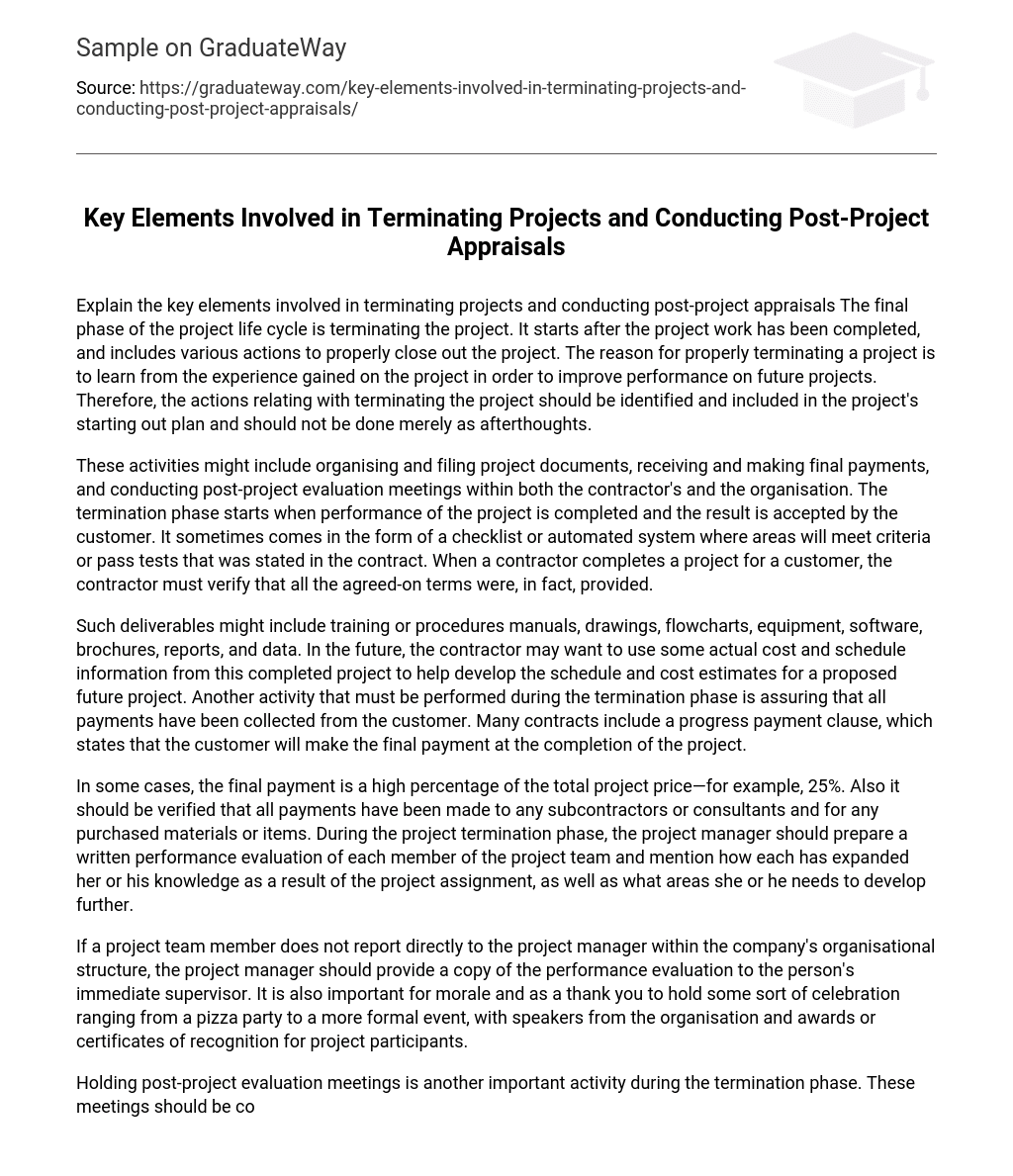Explain the key elements involved in terminating projects and conducting post-project appraisals The final phase of the project life cycle is terminating the project. It starts after the project work has been completed, and includes various actions to properly close out the project. The reason for properly terminating a project is to learn from the experience gained on the project in order to improve performance on future projects. Therefore, the actions relating with terminating the project should be identified and included in the project’s starting out plan and should not be done merely as afterthoughts.
These activities might include organising and filing project documents, receiving and making final payments, and conducting post-project evaluation meetings within both the contractor’s and the organisation. The termination phase starts when performance of the project is completed and the result is accepted by the customer. It sometimes comes in the form of a checklist or automated system where areas will meet criteria or pass tests that was stated in the contract. When a contractor completes a project for a customer, the contractor must verify that all the agreed-on terms were, in fact, provided.
Such deliverables might include training or procedures manuals, drawings, flowcharts, equipment, software, brochures, reports, and data. In the future, the contractor may want to use some actual cost and schedule information from this completed project to help develop the schedule and cost estimates for a proposed future project. Another activity that must be performed during the termination phase is assuring that all payments have been collected from the customer. Many contracts include a progress payment clause, which states that the customer will make the final payment at the completion of the project.
In some cases, the final payment is a high percentage of the total project price—for example, 25%. Also it should be verified that all payments have been made to any subcontractors or consultants and for any purchased materials or items. During the project termination phase, the project manager should prepare a written performance evaluation of each member of the project team and mention how each has expanded her or his knowledge as a result of the project assignment, as well as what areas she or he needs to develop further.
If a project team member does not report directly to the project manager within the company’s organisational structure, the project manager should provide a copy of the performance evaluation to the person’s immediate supervisor. It is also important for morale and as a thank you to hold some sort of celebration ranging from a pizza party to a more formal event, with speakers from the organisation and awards or certificates of recognition for project participants.
Holding post-project evaluation meetings is another important activity during the termination phase. These meetings should be conducted internally, within the organisation that performed the project, as well as with the customer. The purpose of such meetings is to evaluate performance of the project, to determine whether the anticipated benefits from the project were actually achieved, and to identify what could be done to improve performance on future projects.





